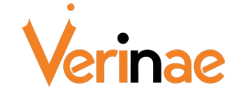PPC Advertising Management in 2025: A Comprehensive Guide
The digital advertising landscape is a constantly evolving arena, and staying ahead of the curve is crucial for success. As we approach 2025, Pay-Per-Click (PPC) Advertising Management has transformed from a simple keyword bidding process to a sophisticated, data-driven strategy. This comprehensive guide dives deep into the key trends, best practices, and actionable tips you need to master PPC in the coming year. We will explore the nuances of automation, AI, audience targeting, and adapting to privacy-centric changes, providing you with the knowledge to maximize your ROI and achieve your business goals.
The Evolving Landscape of PPC Advertising
PPC Advertising Management in 2025 is no longer solely about keywords and bids. Several factors are reshaping the industry, including advancements in artificial intelligence, evolving consumer behavior, and increasing concerns about data privacy. Adapting to these changes is paramount to achieving successful PPC campaigns.
Firstly, the rise of AI and machine learning has significantly impacted PPC. Automated bidding strategies, dynamic ad creation, and predictive analytics are becoming increasingly sophisticated, allowing marketers to optimize campaigns with greater precision. These tools analyze vast amounts of data to identify patterns and make real-time adjustments, ultimately improving performance and reducing manual effort.
Secondly, consumer behavior continues to evolve. Mobile-first indexing and voice search are becoming increasingly prevalent. PPC campaigns need to be optimized for these channels. Moreover, consumers are demanding more personalized and relevant ad experiences, meaning generic campaigns are becoming less effective. Successful PPC requires a deep understanding of your target audience and their specific needs.
Finally, data privacy regulations, such as GDPR and CCPA, are impacting how marketers collect and use user data. This necessitates a shift towards privacy-conscious advertising strategies that respect user consent and comply with regulations. First-party data is becoming increasingly valuable, and marketers need to find innovative ways to leverage it to personalize ad experiences without compromising user privacy.
Key Trends Shaping PPC Advertising Management in 2025
Several key trends are poised to define PPC Advertising Management in 2025. Understanding and leveraging these trends will be essential for success.
AI-Powered Automation and Optimization
AI-powered automation is revolutionizing PPC, enabling marketers to optimize campaigns more effectively. Automated bidding strategies, powered by machine learning algorithms, can analyze vast amounts of data to adjust bids in real-time, maximizing ROI. Dynamic ad creation allows for personalized ad experiences based on user data. Predictive analytics provide insights into future performance, allowing for proactive adjustments.
For example, Google’s Smart Bidding uses machine learning to optimize bids based on the likelihood of a conversion. This can significantly improve conversion rates and reduce wasted ad spend. Consider exploring automated solutions to free up time for strategic planning.
Enhanced Audience Targeting
Reaching the right audience is critical for PPC success. In 2025, audience targeting capabilities are becoming more sophisticated, allowing marketers to target specific demographics, interests, and behaviors with greater precision. Leveraging first-party data, customer match, and lookalike audiences can significantly improve ad relevance and engagement.
For instance, using customer match, you can upload a list of your existing customers to Google Ads and target them with specific ads. Lookalike audiences allow you to reach new customers who share similar characteristics with your existing customers. Remember the importance of privacy. See this information on how Google handles search privacy.
Voice Search Optimization
Voice search is rapidly growing in popularity, and PPC campaigns need to be optimized for this channel. Voice searches are typically longer and more conversational than traditional text searches. Therefore, keyword research should focus on long-tail keywords and natural language queries.
Consider optimizing your ad copy for voice search by using conversational language and answering common questions. You can also leverage structured data to provide voice assistants with the information they need to display your ads effectively. For example, use schema markup to highlight your business hours, location, and contact information.
Video Advertising Dominance
Video advertising is becoming increasingly important for PPC. Video ads are highly engaging and can effectively convey your message to a wider audience. Platforms like YouTube offer a range of targeting options, allowing you to reach specific demographics and interests. Creating compelling video ads that capture attention and drive action is essential.
Consider experimenting with different video ad formats, such as in-stream ads, discovery ads, and bumper ads. Use A/B testing to optimize your video creative and targeting. Always track metrics to measure the impact of your video ads on your overall PPC performance.
Attribution Modeling and Measurement
Accurate attribution modeling is crucial for understanding the true impact of your PPC campaigns. With the increasing complexity of the customer journey, it’s important to use attribution models that accurately attribute conversions to different touchpoints. Data-driven attribution models use machine learning to analyze your account’s conversion data and assign fractional credit to different ad interactions.
Implement a robust tracking system to accurately measure your PPC performance. Track key metrics such as impressions, clicks, conversions, and ROI. Use attribution modeling to understand which ad interactions are driving the most value. This information can then be used to optimize your campaigns and improve performance.
Strategies for Effective PPC Advertising Management in 2025
Implementing effective strategies is critical for maximizing the ROI of your PPC campaigns. Here are some actionable tips to optimize your PPC Advertising Management in 2025:
- Conduct Thorough Keyword Research: Identify the most relevant keywords for your business and target audience. Use keyword research tools to discover long-tail keywords and variations.
- Optimize Your Ad Copy: Write compelling and persuasive ad copy that resonates with your target audience. Highlight the benefits of your product or service and include a clear call to action.
- Implement a Robust Bidding Strategy: Choose the right bidding strategy based on your goals and budget. Consider using automated bidding strategies to optimize bids in real-time.
- Leverage Audience Targeting: Target specific demographics, interests, and behaviors to improve ad relevance and engagement. Use first-party data and lookalike audiences to reach new customers.
- Optimize Your Landing Pages: Ensure your landing pages are relevant to your ads and provide a seamless user experience. Optimize your landing pages for conversions by including clear calls to action and easy-to-use forms.
- Track and Analyze Your Performance: Monitor your PPC performance closely and identify areas for improvement. Use data-driven insights to optimize your campaigns and maximize ROI.
For instance, if you notice that your ads have a high click-through rate but a low conversion rate, it may be a sign that your landing pages are not optimized for conversions. Consider improving the user experience of your landing pages by simplifying the design, adding clear calls to action, and optimizing for mobile devices.
Consider working with Eligiblee SEO Agency to effectively manage your PPC campaigns.
Overcoming Challenges in PPC Advertising
Despite the potential benefits, PPC Advertising Management presents several challenges. Staying ahead requires addressing these hurdles effectively. Increased competition can drive up ad costs, making it more difficult to achieve a positive ROI. Privacy regulations can limit the amount of data available for targeting, making it more challenging to personalize ad experiences.
To overcome these challenges, it’s essential to focus on creating high-quality ads, targeting the right audience, and optimizing your landing pages for conversions. Consider using remarketing to re-engage with visitors who have previously shown interest in your products or services. You can also explore alternative advertising channels, such as social media advertising or content marketing, to diversify your marketing efforts.
Additionally, monitoring news and changes is a must, as the rules of the game can change. To keep up with recent developments, consider reading about changes to AI regulations.
Tools and Technologies for PPC Advertising Management in 2025
A range of tools and technologies can help you streamline your PPC Advertising Management efforts. These tools can automate tasks, provide data-driven insights, and improve overall campaign performance. Here are some essential tools to consider:
- Google Ads: The most popular PPC platform, offering a wide range of features and targeting options.
- Microsoft Advertising: Another popular PPC platform, offering access to a different audience and competitive pricing.
- SEMrush: A comprehensive SEO and PPC tool, offering keyword research, competitor analysis, and site audit features.
- Ahrefs: A powerful SEO tool that can also be used for PPC keyword research and competitor analysis.
- Google Analytics: A free web analytics tool that can be used to track your PPC performance and identify areas for improvement.
These tools can provide valuable insights into your PPC performance and help you make data-driven decisions. Experiment with different tools to find the ones that best suit your needs and budget.
FAQ: Mastering PPC Advertising Management in 2025
Here are some frequently asked questions about PPC Advertising Management in 2025:
What is the future of PPC Advertising Management?
The future of PPC is geared towards increased automation, AI integration, and a focus on personalized user experiences. Privacy-centric strategies and adaptability will be key to success.
How can I improve my PPC ROI in 2025?
Improve your PPC ROI by focusing on relevant keyword research, compelling ad copy, strategic bidding, precise audience targeting, and optimized landing pages. Data-driven analysis is essential.
What are the biggest challenges in PPC Advertising Management?
The biggest challenges include increasing competition, evolving privacy regulations, and the need to stay updated with the latest trends and technologies. Overcoming these challenges requires continuous optimization and adaptation.
How important is AI in PPC Advertising Management in 2025?
AI is critical for PPC in 2025. It powers automation, optimization, and predictive analytics, enabling marketers to improve campaign performance, reduce manual effort, and make data-driven decisions.
What role does video advertising play in PPC?
Video advertising plays a major role due to its engaging nature. Leverage platforms like YouTube with effective targeting and engaging creative for higher visibility.
Conclusion
PPC Advertising Management in 2025 is a dynamic and ever-changing field. By understanding the key trends, implementing effective strategies, and leveraging the right tools and technologies, you can master PPC and achieve your business goals. Embrace automation, prioritize personalization, and adapt to privacy-centric changes. Continuously monitor your performance, analyze your data, and refine your strategies based on data. By staying agile and embracing innovation, you can unlock the full potential of PPC and drive sustainable growth for your business.






